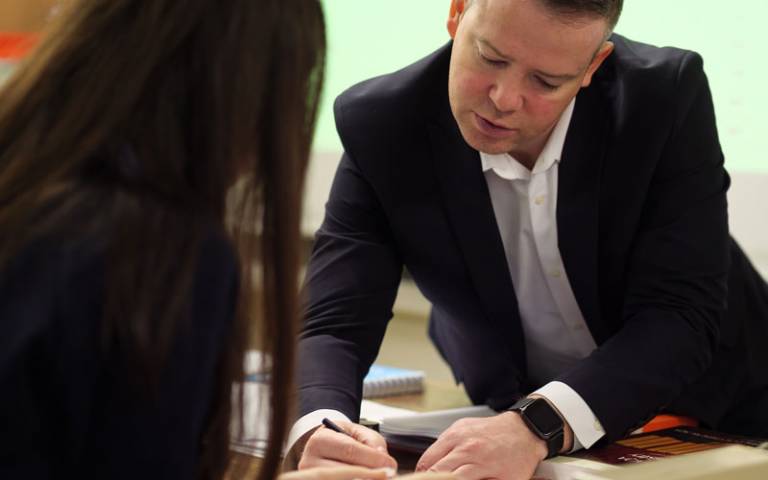Steps towards more effective teacher education for inclusion needed
24 January 2020
Teacher educators in Ireland have positive attitudes towards inclusion. However, they do not always feel they have the relevant knowledge and skills to fully support their students in developing as inclusive teachers.

The research, conducted by principal investigators Peter Hick (Manchester Metropolitan University) and Dr Joe Mintz of UCL Institute of Education (IOE), with University College Cork, also found many teacher educators would welcome more training in this area.
The publication, commissioned by the National Council for Special Education, also reveals teachers often felt that in their teacher training, they gained theoretical knowledge about inclusion but not enough practical knowledge and skills about how to implement inclusion effectively in the classroom.
The multiple methods longitudinal study tracked primary and secondary school participants from their final year of teacher training through to their second year of teaching in schools. The key focus of the study was how well initial teacher education, and the support provided as Newly Qualified Teachers (NQTs) prepared early career teachers to be effective inclusive teachers.
As NQTs, beginning teachers felt that induction support provided in the form of after school taught sessions (often at teachers’ centres away from their school) were not helpful in supporting them to think about how to deal with difference in the classroom. Many felt that a more enquiry-based approach that allowed them space to reflect on their thinking about particular children would be more productive.
Secondary school teachers wanted more practical guidance on how to approach inclusive teaching in their specialist subject areas.
The report also found teachers do not feel sufficiently prepared to engage effectively with parents or to collaborate with other school-based professionals and other education professionals.
Potential implications for teacher education in England
Speaking about the potential implications for teacher education in England, the IOE’s Dr Joe Mintz said:
“Our project reinforces the message that preparing teachers to include all children in their classes should be seen as a core part of teacher education and should be included in all aspects of the teacher training curriculum. This needs to continue in terms of professional learning for new teachers in the first few years of their career. In England, the Early Career Framework potentially provides an opportunity for this to be developed.
“Developing the partnership between universities and schools with a particular focus on teacher education for inclusion is important. Policy should focus on developing opportunities for universities and schools to develop innovative partnerships for teacher education for inclusion in teacher training. This means enabling student teachers to engage in planned experiences of inclusive teaching and reflect critically on their practice in collaboration with peers, school mentors and university tutors. It means more collaboration between Special Educational Needs (SEN) experts and subject experts, and it means addressing SEN as part of broader approaches to including a range of children with barriers to learning.
“Skills for critical reflection also needed to be developed around the practice of inclusive teaching in schools, as teachers progress in to the NQT year. The implementation of the Early Career Framework (ECF) offers a potential opportunity to embed this type of approach in teacher education in England and build on good practice in partnership working between schools and universities.”
Links
- View the report: ‘Initial Teacher Education for Inclusion’
- View Dr Joe Mintz’s research profile
- Department of Learning and Leadership
- National Council for Special Education
 Close
Close

